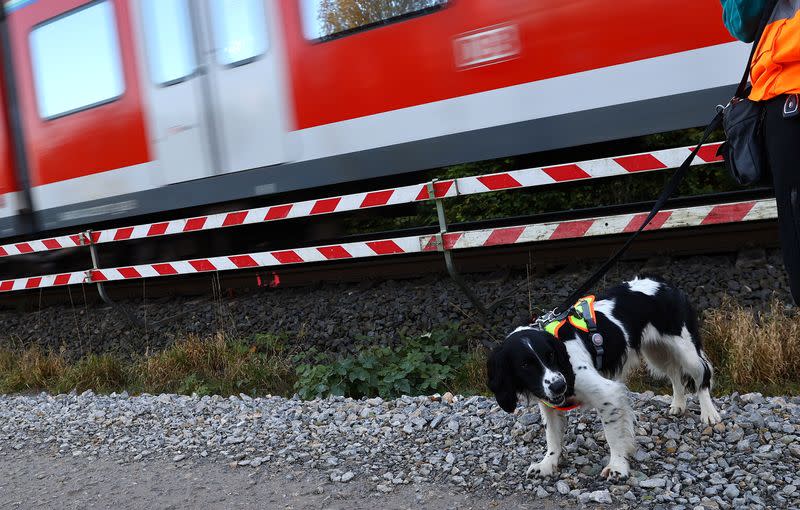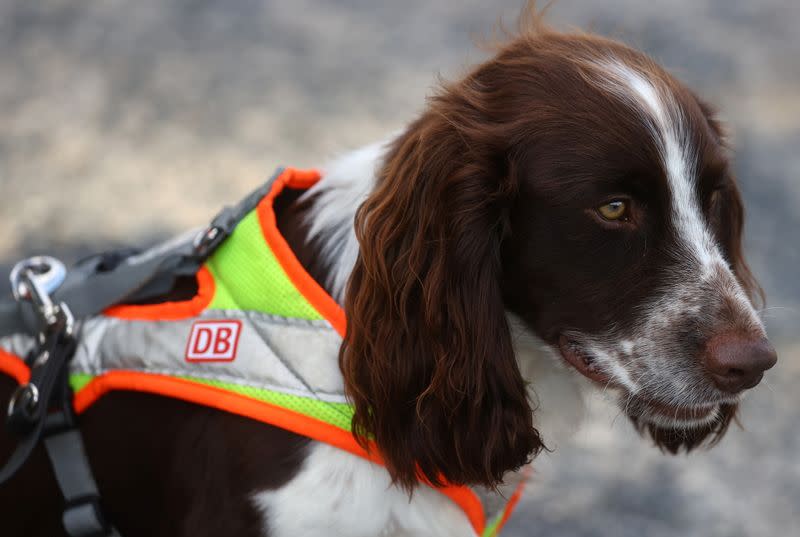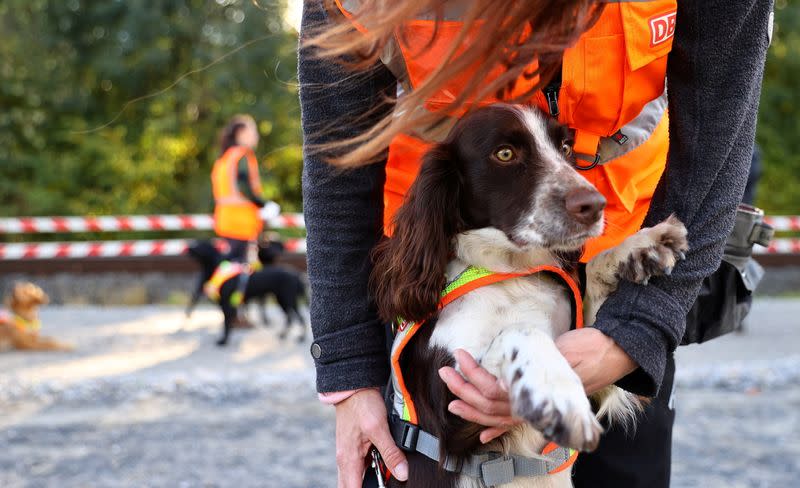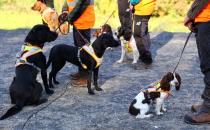German dogs to sniff out wildlife at building sites to speed up work
BERLIN (Reuters) - Sniffer dogs are being trained by Germany's Deutsche Bahn (DB) to find protected wildlife at planned major building sites to speed up projects, the railway group said on Tuesday.
Humans have so far been responsible for finding animals that need to be moved to a safer place while construction goes ahead, but the dogs are set to take over the job in 2022 following training that should finish by the end of this year, DB said.
"The use of dogs for construction projects is new in Germany. Thanks to their fine sense of smell, dogs can find protected species at any time of year and in almost any weather," said Jens Bergmann, DB's director of infrastructure planning.
"This will help us start building more quickly."
The railway company's trainers are working with six dogs of different breeds, which are taught to sniff out protected animals such as creeping snakes, yellow-bellied toads, bats, wall lizards and sand lizards on railway tracks, DB said.
The dogs learn to recognise the animals' smell by sniffing eggshells and sheddings outdoors as well as in different weather conditions in a climatic chamber, DB said.
As the dogs explore the construction sites, their handlers will record their findings on a tablet using a new digital data platform aimed at giving all project participants and regulatory authorities access to real-time data about the detected species.
Scientists from the University of Innsbruck, the Bonn-Rhein-Sieg University of Applied Sciences and the Helmholtz Centre for Environmental Research are also accompanying the dogs and their trainers.
(Reporting by Andreas Buerger, Frank Simon; Writing by Zuzanna Szymanska, Editing by William Maclean)

 Yahoo Finance
Yahoo Finance 











